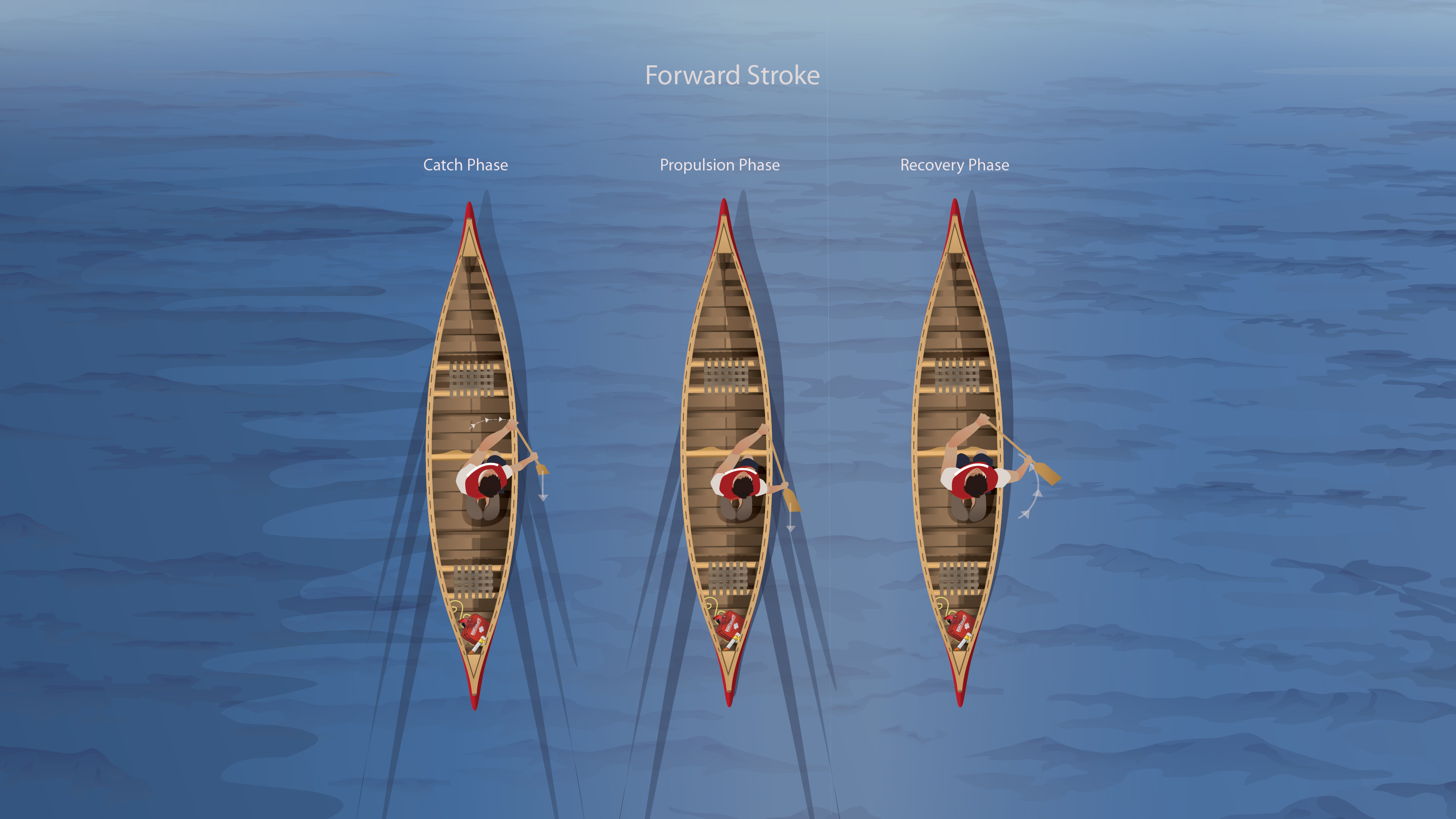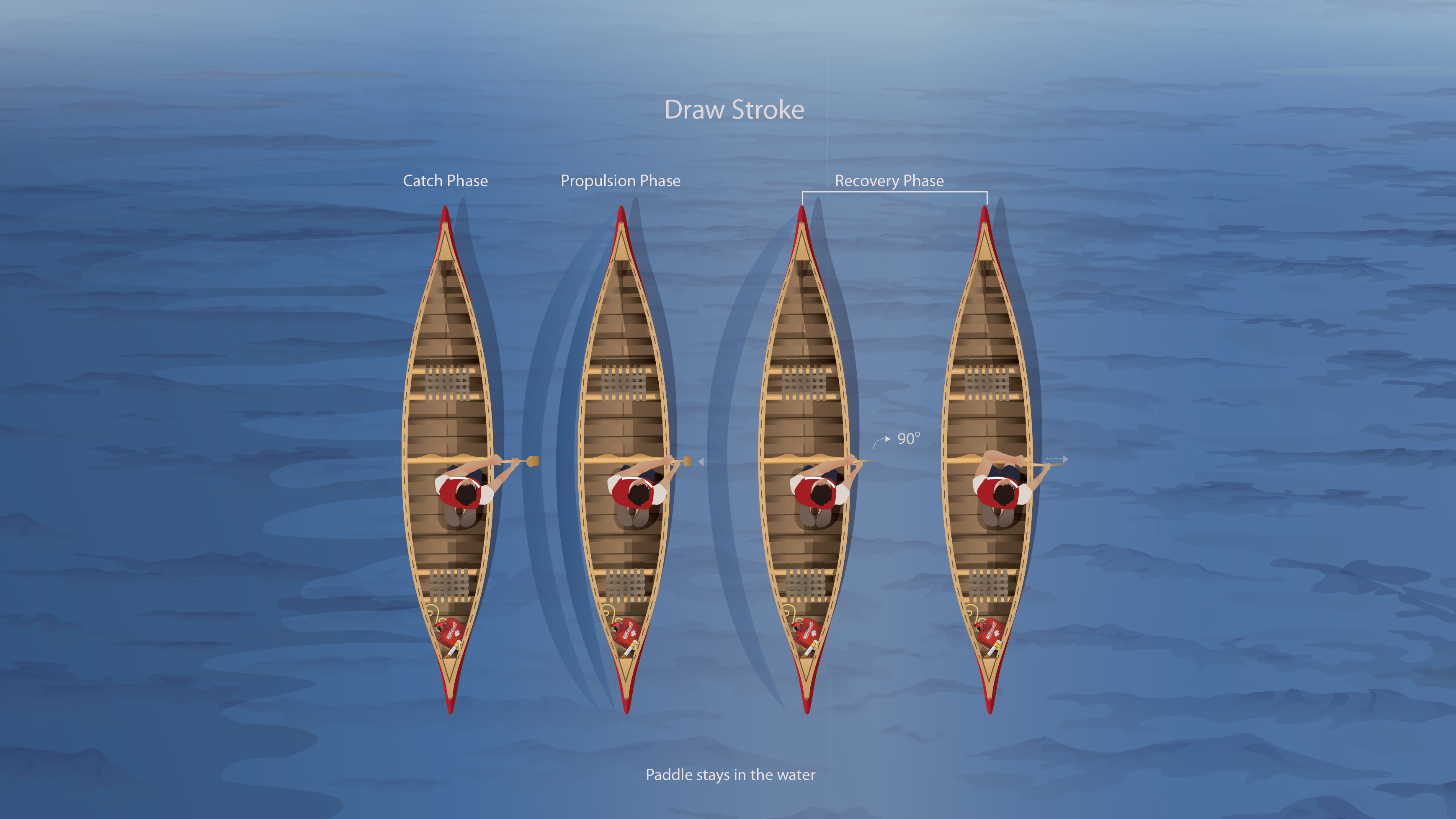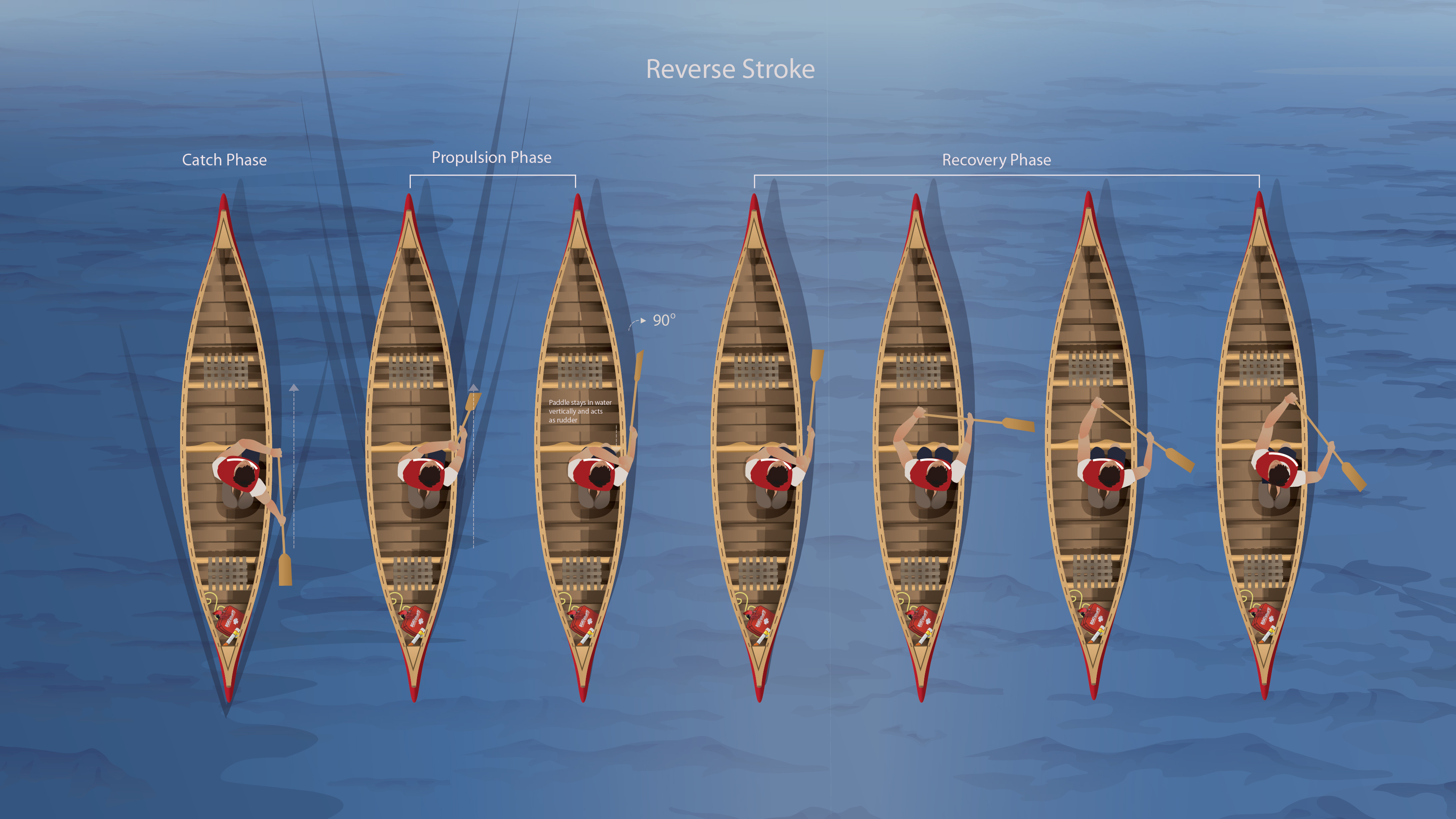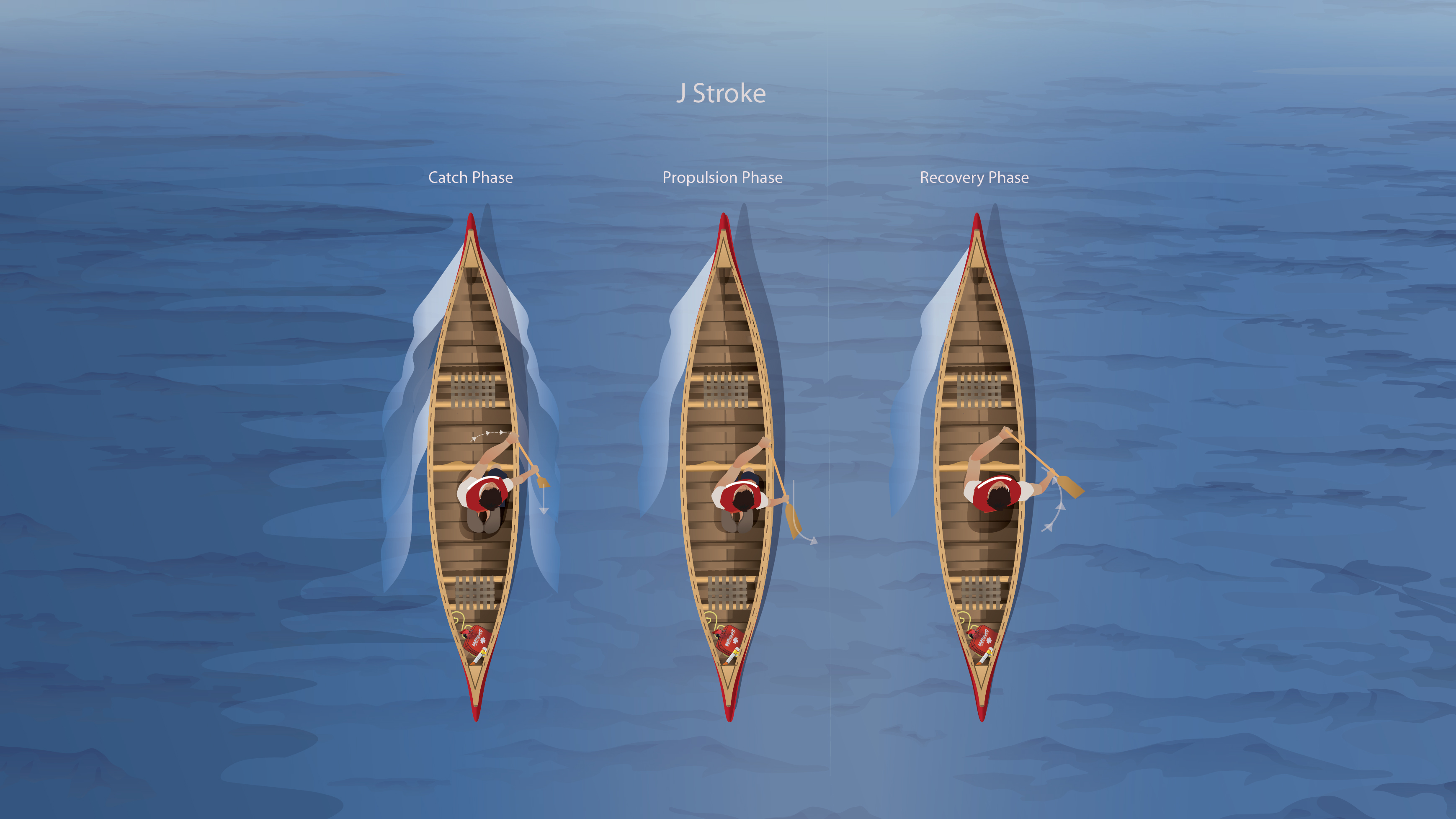PADDLERsmart! Canada Knowledge Base
Module 04 - Safe Boat Operation
PADDLE STROKE TECHNIQUES
To control the direction of your canoe or kayak, use the following paddle techniques:
FORWARD STROKE:
Also known as the ‘power stroke’, this stroke will move the paddle craft forward.

Step 1: Catch: Rotate your torso 45° offside, and extend both arms forward, with both hands across the gunwale. At this point, the paddle should be nearly vertical in the water.
Step 2: Propulsion: Rotate your torso back to the forward position, keep both arms straight and pull the paddle straight back (parallel to the keel line).
Step 3: Recovery: Bring the paddle forward by slicing it through the water, keeping it parallel with the water and then returning it to the catch position.
Kayak variation: with a kayak paddle there’s a blade on both ends, so you don’t need to lift and transfer the paddle from side to side, like with a canoe paddle.
DRAW STROKE:
This stroke moves the paddle craft sideways, towards the paddle, to quickly change your direction.

Step 1: Catch: Turn your torso towards your onside. Position your hands on the paddle so that your arms are straight, located over the gunwale and your paddle is nearly vertical in the water.
Step 2: Propulsion: Keep the blade of the paddle parallel to the keel line and pull the paddle towards your onside hip.
Step 3: Recovery: Rotate the paddle so that it is perpendicular to the keel line. Then slice the blade through the water and away from the craft before you return to the 'catch' position.
Reverse Stroke:
This stroke will propel the paddle craft backwards.

Step 1: Catch: Turn your torso 45° towards your onside, and then extend the paddle behind you, keeping it flat on the surface of the water.
Step 2: Propulsion: While rotating your torso back to the forward position, dig the paddle into the water to propel the boat backward. Keep the paddle extended in front of you and use it as a rudder to keep the paddle craft moving in a straight line.
Step 3: Recovery: Turn your torso 45° towards your onside and then return the paddle to the catch position so that it’s once again flat against the water.
'J' STROKE:
Solo paddlers (and the stern paddler in tandem craft) use this stroke to keep the paddle craft moving forward in a straight line. It can also be used to make small adjustments to your direction of travel.

Step 1: Catch: Complete a regular forward stroke by rotating your torso 45° offside and extending both arms forward, with both hands across the gunwale, keeping the paddle nearly vertical in the water.
Step 2: Propulsion: Rotate the torso back to the forward position, propelling the boat forward. When concluding your forward stroke, keep the blade in the water and rotate the blade away from the boat, making a 'j' shape with the paddle.
Step 3: Recovery: Rotate your torso 45° towards your onside, and return the paddle to the catch position.
Try to maintain the ‘paddler’s box’ posture when you’re paddling. This means that when holding the paddle in front of you with straight arms and with your hands shoulder width apart, there should be a box-shape between your chest, arms and the throat of the paddle.





